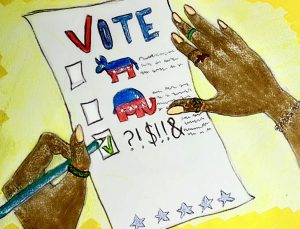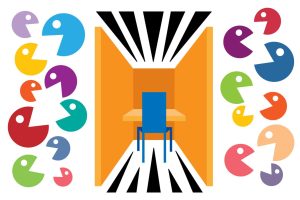Students should engage with their college’s DEI committee
October 25, 2022
When sociology sophomore Madyson Mireles arrived on campus, she felt culturally sheltered. Mireles grew up in a minority-majority community, attending a high school consisting of students from primarily Latinx backgrounds. Her voice was unheard at UT.
She made it her mission to change this.
Mireles currently serves as the co-director of the University’s student government diversity and inclusion agency. She hoped to cultivate an environment where students are always heard, no matter what their identity is. Initiatives such as a database of resources for land acknowledgments, partnering with the queer-trans student alliance and an AIDS prevention campaign are on the top of her mind.
“(These are) topics that transcend constraints like race … and gender ability,” said Mireles.
For many like Mireles, the idea of identity, heritage and belonging on campus can be blurred. To ensure that student voices are accurately represented, students should get involved in their college’s Diversity, Equity and Inclusion committee to represent the voices of their peers, promote DEI initiatives and advocate for inclusive teaching.
As a component of the University’s diversity and inclusion plan, all colleges established a Diversity and Inclusion committee in 2016. Each college’s committee leads a localized effort in assessing current initiatives, establishing rapport through coalitions and formulating recommendations for students and faculty. However, certain colleges involve students more than others.
The Cockrell School of Engineering established its first structured student-led DEI board. They are tasked with facilitating events for structured conversations, holding open meetings and building rapport with student engineering organizations.
“(We) wanted to see more student voices around DEI and so (we) started brainstorming ways to do that. So the idea for this board (arose),” said Christine Julien, a professor and the assistant dean of diversity, equity and inclusion for the Cockrell School of Engineering.
Nicholas Ignacio, a second-year material science Ph.D. student, explained his motivations behind joining the DEI board.
“(We are the) interface between the student body and faculty and administration,” Ignacio said. “I’m Filipino. I’ve never seen anybody that looks like me as a professor or as a graduate student.”
Currently, the student-led board in Cockrell has six members, consisting of both undergraduate and graduate students. For them, leading the direction and vision of the college’s diversity and inclusion plan is an empowering task.
Within the Jackson School of Geosciences, similar initiatives exist. Through the DEI committee, its members have supported GeoFORCE, a high school outreach program with a focus on increasing the number and diversity of students in STEM. They have also established an inaugural culture and climate survey, where student committee members are leading the school’s involvement and feedback.
“I think a constant across my time at UT, which is more than 13 years, is that students care about this,” said Julia Clarke, the associate dean for diversity, equity and inclusion at the Jackson School of Geosciences.
The Jackson DEI board has also made commitments to inclusive teaching methods.
“We have (appointed a new in-house) learning scientist who’s focused on working with me and with a lot of other faculty on making our whole intro curriculum more inclusive and better for all students,” said Clarke.
When pursuing diversity and inclusion, stories matter. For undergraduates and graduates, students’ voices and opinions matter. While there are many avenues to get involved in DEI efforts, one way is through your college’s committee.
“If you don’t get the student’s perspective, then you … might not have the purpose that you set for,” said Mireles.
It’s true. A small, passionate group of students can accomplish big things.
Stories and voices matter — students should seek out opportunities within their college’s diversity and inclusion committees.
Wan is an aerospace engineering and Plan II freshman from Houston, Texas.







